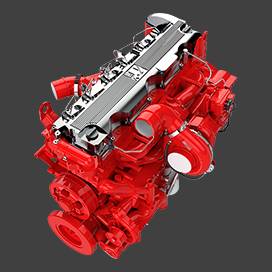Oct . 12, 2024 17:47 Back to list
brake drum squeak
Understanding Brake Drum Squeaking Causes and Solutions
When it comes to vehicle maintenance, one of the most crucial components is the braking system. A reliable braking system is essential for ensuring safety on the road. However, one common issue that many vehicle owners encounter is a squeaking noise coming from the brake drums. This article will explore the primary causes of brake drum squeaking, as well as potential solutions to address the problem.
Causes of Brake Drum Squeaking
1. Worn Brake Shoes Over time, brake shoes can wear down due to normal use. When the friction material wears thin, it can lead to a squeaking sound as the metal components of the brake system come into contact with each other. This noise is often a sign that it’s time to replace the brake shoes.
2. Moisture and Debris Brake drums can accumulate moisture and debris, especially in humid conditions or when driving in rainy weather. Water and contaminants can create a thin layer between the brake shoes and the drum, leading to squeaking as the shoes engage.
3. Lack of Lubrication The components of the brake system, such as the brake backing plate and the contact points of the shoes, require proper lubrication to function smoothly. When these areas lack adequate lubrication, it can result in friction and consequently squeaking noises.
4. Improper Installation If the brake shoes or other components are not installed correctly, it can lead to misalignment and unusual wear patterns. This misalignment can also create squeaking sounds as the shoes do not fit snugly against the drum.
5. Brake Dust Buildup Brake dust, which is a byproduct of the braking process, can accumulate in the drum area. This can lead to reduced performance and create noise when the brakes are applied. Regular cleaning of the braking components can help mitigate this issue.
brake drum squeak

6. Glazed Brake Shoes If the brake shoes have become glazed due to excessive heat, they can lose their effectiveness and produce a squeaking sound when in contact with the drum. Glazed surfaces are typically shiny and smooth and can drastically affect braking performance.
Solutions to Brake Drum Squeaking
1. Inspection and Replacement Regular inspection of your brake system is essential. If you notice squeaking, it’s advisable to have a qualified mechanic check the brake shoes for wear. Replacing worn brake shoes can eliminate the noise and restore proper braking function.
2. Cleaning Brake Components If debris or moisture is the culprit, a thorough cleaning of the brake system can be beneficial. Use a brake cleaner to remove dust and contaminants from the drums and shoes.
3. Lubrication Ensure that all necessary components are properly lubricated. This includes the backing plate and any pivot points. Using the appropriate brake lubricant can help prevent squeaking due to friction.
4. Reinstallation If you suspect improper installation, seek professional assistance to ensure that all components are fitted correctly. Proper alignment can greatly reduce squeaking issues.
5. Addressing Glazing If the brake shoes are glazed, they may need to be replaced or resurfaced to restore their ability to generate friction effectively. A mechanic can provide guidance on the best course of action.
In conclusion, brake drum squeaking can be a nuisance, but it often signals an underlying issue that requires attention. Understanding the causes and solutions can help vehicle owners maintain their braking systems and ensure safe driving conditions. Regular maintenance and inspections are key to preventing problems and keeping your vehicle running smoothly. If in doubt, always consult a professional mechanic to diagnose and resolve brake-related concerns.
-
Brake Drum Man - High-Quality Drum Brake Drums & Brake Shoes for Reliable Performance
NewsJun.24,2025
-
High-Quality Brake Drum Kamaz – Durable Drum Brake Drum & Brake Shoe Replacement
NewsJun.10,2025
-
High-Quality Brake Drum Liza for Drum Brake Systems - Superior Durability and Performance
NewsJun.10,2025
-
High-Quality Brake Drum Kamaz – Durable Drum Brake Drum & Brake Shoe Solutions
NewsJun.10,2025
-
Durable Kamaz Brake Drums High-Performance Truck Parts
NewsJun.09,2025
-
Premium Brake Drum Maz Kit with Shoes Enhanced Braking
NewsJun.09,2025
